Poland Land is the key to success but requires skills
Material partner
Will land get cheaper?
Aleksandra Wołodźko, CEO of consulting firm Greenfields: The last time we saw a decline in land prices was after the global crisis in 2008. Plots were getting cheaper and cheaper, the European economy was going through a deep recession, and real estate companies were conducting massive layoffs. Today, we are lucky to have no layoffs, and employers are not cutting wages. I don’t see any reason for a drop in plot prices. Nevertheless, we have recently heard during negotiations: “if inflation is going up, land should get cheaper because otherwise, the developer will not make the desired profits.” We wouldn’t bet that this economic theory is going to stick with private landowners, as we know from experience that they would rather eat dry bread for the rest of their lives than sell land at a price they consider unfair.
So should we expect plot prices to continue to rise?
I don’t want to make any strong predictions on how the coming months will look like, but I can confirm that we’re already investing in land more heavily than ever. Mark Twain once said, “Buy land, they’re not making it anymore,” and we are fully committed to this principle. There is no real estate asset that returns as high yields as land over the long term. It is not what you will hear at MIPIM or Expo Real because property funds don’t buy plots. Land doesn’t generate annual returns that can be shown to investors in Excel. More importantly, buying commercialized buildings requires mainly financial skills, while buying and converting land requires negotiating, architectural, legal, and engineering competencies. We do have such competencies. We also have a feel for the market and a vision, plus we accurately identify locations gaining value.
Developers, especially in Warsaw, complain about delays in administrative decisions. Where is the problem?
Our company is efficient in obtaining decisions, as we know the market very well, our employees have extensive experience, and we stay in constant dialogue with the Warsaw authorities.
Still, I confirm that obtaining zoning decisions and building permits in Warsaw is a major challenge, and applications take years to process. In addition, it’s just ridiculous that local plans are adopted based on a 20-year-old land use plan that doesn’t respond to the current needs of the city. Other cities show that a smooth change of the land use plan is possible. In Gdańsk, the new document was enacted in 2 years and 8 months. In Wrocław – in 3 years and 6 months.
In Warsaw, protests also cause problems. According to the law, an official should include the neighbours in a building permit procedure only if the project affects their property. The projects we advise on are built in such a way as to avoid this. But some officials, even today, keep on including the neighbours in the procedures without having any reason to do so, and the neighbours keep on protesting against the permits, demanding money from the developers to stop protesting. And those protests often take years to resolve, and in 99 pct of cases, they are dismissed by the courts. It is not a precedent but actually a practice to the extent that communities and some law firms specialise in articulating demands to developers. And the developers, in order to maintain schedules, give in to such unjustifiable wishes.
Let us remind you that Warsaw is one of the most affordable capitals in the European Union to live in. Numerous corporations want to locate their businesses in the capital city of Poland. To continue being competitive, we need to increase the offer of land. We believe that in Warsaw, in urbanised areas, there are enough plots of land. We just lack agility in transforming existing land and obtaining zoning and building permits.
What else causes you difficulties?
Inflexible spatial planning. We believe that the local plan should define public areas and road infrastructure as well as height, volume, maximum building area, environmental areas, etc. But it should not determine the intended use, but just exclude harmful functions. The question is how one may predict the needs of a given plot of land in 20 years’ time? Predicting whether we will need more offices, apartments, hotels, elderly care centers, or data centers in the future is a bit like fortune-telling. Planning should be more flexible as only then will it serve the city, developers, and residents well.
Is it true that you have had plenty of disputes with the City of Warsaw due to their refusal of some of your applications?
Yes, that’s true. We have had about a dozen or so appeal proceedings following the refusal to issue zoning decisions. We’ve won most of them. We were successful in receiving positive decisions in the appeal procedure, but it delayed the whole development process by several years. What hurt us the most was the fact that the municipal officials perceived us as opponents for quite a long time, so basically, after the first appeal to the Local Government Appeal Board, we kept getting negative decisions from them.
Is it still like this?
Luckily for everyone, we have put a stop to this situation. We changed our approach to a more conciliatory and empathic one, which has allowed us to unblock a number of procedures, including the processing of our application under the special purpose housing law for the development on ul. Gdańska in Warsaw, which was initially rejected by the city. Thanks to constructive dialogue with the authorities and the architectural and construction administration bodies, the relevant resolution was adopted at a second attempt, opening the door to the special purpose law for other developers.
We are aware that the work of officials is more difficult than we think. At the same time, we believe that unfavorable court decisions made the city authorities realise that it is worth listening to the developer’s arguments to avoid lengthy appeal procedures.
So will it be easier than before for developers to obtain decisions in Warsaw?
I didn’t say that, but we’re seeing real progress here. Anyway, we have clients from all over the world, and although they all complain about how confusing and unpredictable it is to obtain permits in Poland, they also admit that their own countries aren’t much better in this respect.
Coming back to the project on ul. Gdańska, you submitted one of the first applications in the country under the special purpose housing law in Warsaw. This development was given the green light by the authorities, but the decision was preceded by a court battle.
Unfortunately, mainly for political reasons, there was a lot of controversy surrounding the new regulations. However, we have seen great potential in the special purpose law right from the beginning. We are pioneers, for sure. But when it comes to the first project, on ul. Gdańska, we had to go through the entire appeal process to get the City of Warsaw to agree with us.
But has much changed since then?
Today I don’t think anyone doubts that the special purpose law is a good tool that helps to transform neglected areas of our cities. We knew this right from the beginning, and we are glad that now the City of Warsaw also fully supports this law. We lost 5 years fighting in court that we could have used to have a lot of new land for residential use ready.
The special purpose law brings benefits to the entire district. It requires the investor to finance the construction of public services such as schools, kindergartens, roads, parks, or other green areas. In addition, it is a good alternative to outdated zoning plans.
Are the first effects of the special law already visible?
The first two projects are being developed under this procedure in the district of Praga Południe.
As for the location on ul. Gdańska that I mentioned before, Greenfields is working on a building permit. We’re coordinating the construction of an intimate residential estate with green areas and services. On ul. Bieżuńska in the district of Targówek, we are preparing a residential project with a public kindergarten and green areas. This is also an area that is in urgent need of transformation. Bieżuńska is a post-industrial rift in the compact urban fabric rather than a showpiece of the district.
We’re working intensively on several other projects in the best locations in Warsaw. We’re making efforts to obtain the required decisions for land on which some 2,200 apartments will be built. More details will be provided soon.
We’re not limiting ourselves to Warsaw. In Płock, we’re transforming a post-industrial site of 6.5 ha. This is one of the largest projects of this kind in Poland. The project involves the construction of: 1,400 apartments, recreational areas, services, a road, and a kindergarten. The new development will change this part of the city in a fundamental way, as it covers an area where there were numerous buildings housing poultry processing plants, causing major inconvenience.
It is worth emphasising that all developments will be in line with the popular concept of the 15-minute city, involving the construction of public infrastructure such as kindergartens, crèches, green areas, parks and roads.

***
Aleksandra Wołodźko – has several years of experience in the land market. Since 2005, she has been CEO of Greenfields, a consulting firm with transactions covering the sale of more than 1.2 mln sqm of land in total and the construction of more than 17,500 apartments. She has advised international developers, investment funds, and developers of warehouses, hotels, data centres, and the PRS sector on land purchase and sale transactions and the coordination of the development process. She graduated from the University of Warsaw. As the CEO of Greenfields, she has participated in the preparation of resolutions under the special purpose housing law, e.g., for one of the largest projects of its kind in Poland: the Kostrogaj estate in Płock, comprising 1,400 apartments.
































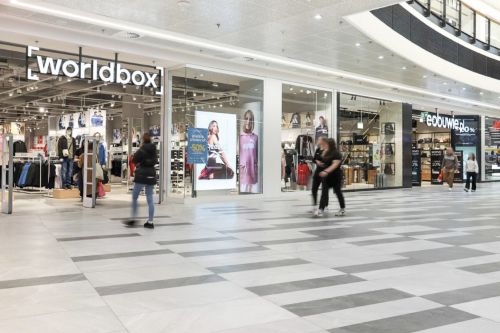
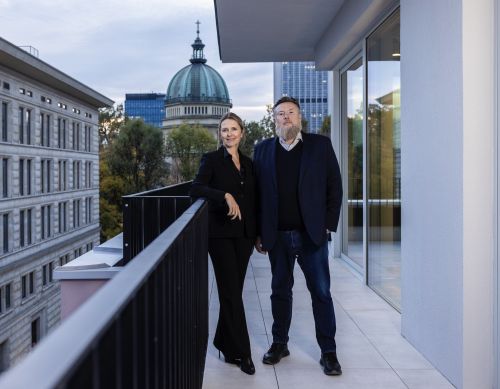



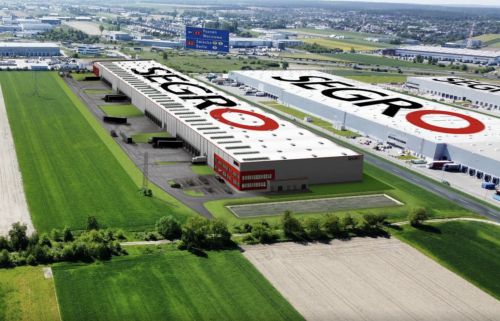

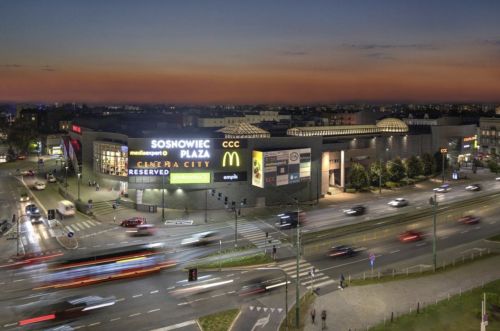

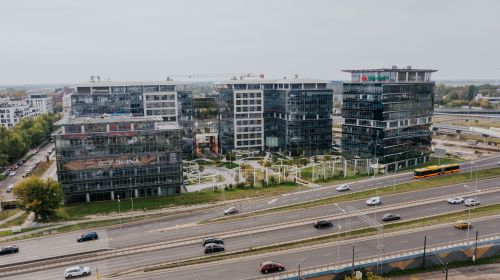
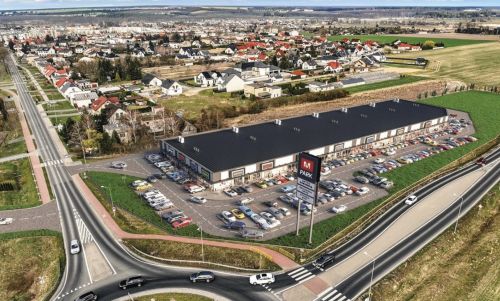









































Strong warehouse sector whilst capital cautious and offices yet to rebound
Strong warehouse sector whilst capital cautious and offices yet to rebound
Newmark Polska
Poland’s commercial real estate market enters 2026 in good health and with solid growth potential. Warehouses remain one of the strongest sectors in Europe, while constrained ...
The end of greenwashing as flex grows in strength
The end of greenwashing as flex grows in strength
Walter Herz
The office sector is entering a period of deeper qualitative and financial scrutiny. Decisions regarding new projects, refurbishments, or leasing are now supported by more thorough ...
The quiet revolution in Małopolska
The quiet revolution in Małopolska
Axi Immo
Developers across the region are increasingly favouring heat pumps and photovoltaic systems over traditional gas boilers in warehouse construction. This shift marks a growing commi ...